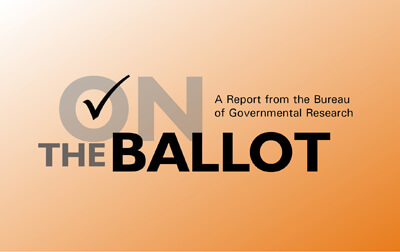
St. Tammany Parish seeks sales tax to pay criminal justice costs as money runs out
By Sara Pagones
Source: The Times-Picayune | The New Orleans Advocate
November 2, 2021
For years, St. Tammany Parish voters have been hearing about the looming financial plight the parish will face if a new revenue source isn’t secured for the jail and courthouse. A pair of quarter-cent sales taxes that funded those operations expired in early 2018 after voters three times shot down attempts to renew them.
Now, as voters again are being asked to adopt a sales tax for criminal justice costs, the long-threatened fiscal crisis is at hand.
By March, the parish will have exhausted the $17.3 million reserve fund that it has been draining for more than three years to pay for operations and maintenance of the jail, the 22nd Judicial District Court and the District Attorney’s Office — all costs the state requires the parish to cover.
Parish officials are hoping for a different outcome when voters go to the polls Nov. 13, touting this proposition as a quality of life tax to keep St. Tammany one of the safest parishes in Louisiana. They are also stressing the differences between this measure and the earlier, unsuccessful tax attempts.
Instead of seeking a renewal of two separate sales taxes, one for the jail and one for the courthouse, this time voters will decide a single sales tax dedicated to mandated criminal justice costs. It’s 4/10ths of a cent, smaller than the two quarter cent sales taxes it would replace, and will generate $22.2 million annually. It would expire in seven years rather than 10, a decision Parish President Mike Cooper said will build voter trust.
The ballot language excludes construction and expansion that was part of the original tax dedication and remained in the renewal language.
“Unlike previous tax initiative, this one has been narrowed to fund critical operation of the criminal justice system,” tax information on a parish-government informational website, keepsttammanysafe.org, says. “This is not a tax for new construction or major capital upgrades.”
The retooling is the work of a 24-member revenue review panel that Cooper created to scrutinize the budgets of the parish and the agencies it is required to help fund.
The parish is explicitly breaking down how the money would be allocated: $12.1 million to Sheriff’s Office and jail; $8.1 million to the District Attorney; $4.6 million to operate and maintain the courthouse; and $3.4 million to the 22nd Judicial District Court. Smaller amounts would go to other agencies, such as the City Court of East St. Tammany and the Registrar of Voters.
“We’re not looking for added revenue to run parish government,” Cooper said, noting that money from the parish general fund will still be needed to meet the entire cost, which he pegged at nearly $30 million.
“We lost this revenue, over $20 million. We’re trying to restore that revenue with a new initiative,” he said.
The goal, Cooper said, is a properly funded criminal justice system, and the agencies aren’t asking for large increases but to sustain what they have an keep up with a growing parish.
The keepsttammanysafe.org site notes that St. Tammany’s populations was 2.38 times greater than in 1980 when the sales taxes were initially adopted — and at a higher rate.
Cooper said that the revenue committee considered other options, including rededicating a portion of the 2-cent sales tax that can only be spent on roads, drainage and bridges. But, he said, members felt it would be a mistake to take anything away from infrastructure needs, which are continuing to grow.
As for seeking a property tax, Cooper said that a 9-mill tax would be needed to generate the same amount of revenue, putting all of the burden on property owners. A sales tax, by contrast, is also paid by people who don’t live in St. Tammany.
What happens if the tax fails? That’s a question that Cooper answers carefully.
“Then we don’t have the revenue to pay our state-mandated expenses. Those agencies are going to look for ways to get that revenue,” he said, declining to speculate on what might happen next.
The measure has received the support of the St. Tammany Chamber of Commerce and the Bureau of Governmental Research, a New Orleans-based nonprofit watchdog group.
Early voting is underway and runs through Nov. 6.
Editor’s note: A subhead on this story incorrectly said the tax would run for 10 years. It will run for 7 years.
Fair Use Notice
This site occasionally reprints copyrighted material, the use of which has not always been specifically authorized by the copyright owner. We make such material available in our efforts to advance understanding of issues and to highlight the accomplishments of our affiliates. We believe this constitutes a “fair use” of any such copyrighted material as provided for in section 107 of the US Copyright Law. In accordance with Title 17 U.S.C. Section 107, the material on this site is available without profit. For more information go to: US CODE: Title 17,107. Limitations on exclusive rights: Fair use. If you wish to use copyrighted material from this site for purposes of your own that go beyond “fair use,” you must obtain permission from the copyright owner.
